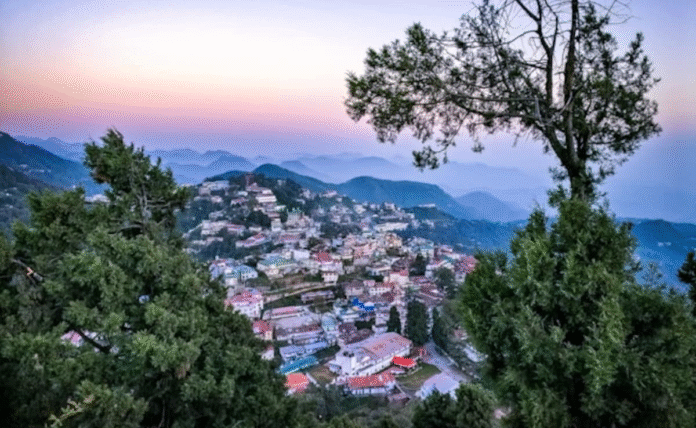Mussoorie, Uttarakhand – In a decisive move to counter the mounting pressures of overtourism, the state of Uttarakhand has launched a comprehensive digital registration system aimed at managing the influx of visitors to the iconic hill station of Mussoorie. Known as the “Queen of the Hills,” Mussoorie has seen a dramatic rise in tourist footfall in recent years, leading to significant strain on its infrastructure, natural resources, and environment.
The newly introduced system, spearheaded by the Uttarakhand Tourism Department, mandates digital registration of all tourists by accommodation providers in the region. The initiative is part of a broader government strategy to ensure sustainable tourism and protect Mussoorie’s fragile ecosystem for future generations.
Mounting Pressure on a Beloved Destination
Once famed for its serene landscapes and cool mountain air, Mussoorie has been grappling with a surge in tourist numbers—particularly during weekends, holidays, and peak summer months. Between 2022 and 2024, the number of visitors more than doubled, exacerbating problems like traffic gridlock, water shortages, and waste mismanagement.
“Overtourism has reached a critical point,” said a senior official in the state tourism department. “Without regulation, the town’s charm and ecological integrity could be lost.”
New Regulations for Hotels and Homestays
Effective immediately, all accommodations—including hotels, guesthouses, and homestays—are required to register with the government’s digital tourism portal. Operators must upload details including the property name, number of rooms, total guest capacity, and contact information. Additionally, guest check-in data must be logged digitally in real time.
This centralized tracking system will allow authorities to monitor the number of visitors in Mussoorie at any given time, ensuring better planning of local resources and more effective crowd management.
“The digital platform will serve as a backbone for tourist monitoring,” said the director of Uttarakhand Tourism. “It’s a step towards smart, responsive governance that protects the destination while still welcoming travelers.”
Pre-Registration for Tourists Under Consideration
Alongside the hotel registration mandate, authorities are also exploring the introduction of mandatory pre-registration for tourists during peak seasons. Under the proposed system, visitors would need to register online ahead of their journey, submitting basic personal and vehicle information. Upon completion, travelers would receive a QR code required for entry into Mussoorie.
To facilitate enforcement, Automated Number Plate Recognition (ANPR) systems are being installed at key access points including Kimadi, Kempty Fall, and Kuthal Gate. These systems will scan QR codes and vehicle plates, ensuring that only registered visitors can proceed.
The measure is intended to limit unregulated traffic and ease congestion—frequent concerns during tourist surges that overwhelm Mussoorie’s narrow mountain roads and limited parking infrastructure.
A Response to Growing Environmental Concerns
The environmental degradation linked to overtourism has prompted not only local outrage but also judicial scrutiny. The National Green Tribunal (NGT) has issued directives urging the state to control tourist flows into ecologically sensitive zones like Mussoorie.
Water shortages, deforestation, and increasing waste volumes are among the most pressing challenges. With these new digital systems, the government hopes to both mitigate environmental damage and improve the quality of the visitor experience.
“These reforms aren’t anti-tourism,” a state environment officer clarified. “They’re about preserving what makes Mussoorie beautiful—and ensuring that it remains that way for generations to come.”
Setting a Precedent for Sustainable Tourism in India
Mussoorie’s digital management system could serve as a model for other overburdened tourist destinations across India. As popular hill stations and cultural sites struggle with unchecked growth, Uttarakhand’s approach underscores the importance of balancing economic gains with environmental stewardship.
While the new policies may initially be met with resistance from stakeholders, state officials are optimistic that digital registration and better regulation will enhance Mussoorie’s appeal rather than deter visitors.
The Road Ahead
With its panoramic Himalayan vistas, colonial-era architecture, and forested trails, Mussoorie continues to captivate domestic and international travelers. However, the challenge now lies in sustaining that allure without compromising its natural and cultural heritage.
The implementation of digital oversight and potentially mandatory pre-registration marks a forward-looking step in this direction. If successful, it could transform Mussoorie into a beacon of sustainable mountain tourism in India.
“We welcome travelers,” said a senior tourism officer. “But we must also welcome responsibility—for the land, the people, and the generations that follow.”











